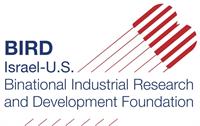Israeli Innovation: Visit to Sorek and the BIRD Foundation
Posted by Alexis Yelvington, J.D. '20
On our second day in Israel we woke up in Tel Aviv with a full itinerary in front of us. In the morning we set off to meet with the deputy CEO of IDE Technologies, which built and operates a large desalination plant, followed by a meeting with a unique non-profit organization called the BIRD Foundation. I chose to participate in this trip because of my interest in environmental law and the infrastructure that goes along with it. So I was looking forward to the full day ahead.
Sorek Desalination Plant
Our first stop of the day was at the Sorek Desalination Plant. Sorek is the largest desalination plant in the world. Sorek turns 624,000 cubic meters of salt water into fresh water every day and provides 20% of Israel’s fresh water.
Our day started with a presentation about the desalination process. We learned about everything from the intake pipes, which carry the water from the ocean to the plant, to the size of the membrane that is the most energy efficient.
After we all had a better understanding of desalination, we put our hard hats on to see the process in action. First, we stood inside a massive intake pipe. Then, we climbed to the top of the water tanks to see how water is filtered through sand. Next, we walked through a loud warehouse where pressure is used to push water through the membranes.
At end the tour we got to taste the final product. Our guide turned a faucet and gave us each a cup of fresh water, which had been in the ocean only twenty minutes prior.
Feeling hydrated, we then met with Lihy Teuerstein, IDE’s deputy CEO and former general counsel. She spoke with us about the framework for a desalination plant in Israel. She explained that IDE is a private company with only one client for its fresh water, the Israeli government. It was particularly interesting to hear how Israeli property law affects the amount of time IDE has to make a profit. Teurstein explained that IDE leases the land for Sorek from the government (like most of the land in Israel), so in order to avoid tax burdens the plant needed to turn a profit in less than 35 years. This intersection of water and property law explained the focus at Sorek on making water desalination so efficient.
She spoke about the various models for building a desalination plant and the legal issues that arise with each. We discussed some of the financing issues that occur in countries with less stable governments. Additionally, we learned about some of the legal and regulatory differences between Israel and Texas when developing a desalination plant.
BIRD Foundation
 After our crash course in desalination and a quick falafel sandwich for lunch, we headed to the center of Tel Aviv, to meet with Eitan Yudilevich, the executive director for the Binational Industrial Research and Development Foundation (BIRD). The BIRD Foundation is a non-profit that seeks to support partnerships of the U.S. and Israel in developing innovative products, through the provision of funding.
After our crash course in desalination and a quick falafel sandwich for lunch, we headed to the center of Tel Aviv, to meet with Eitan Yudilevich, the executive director for the Binational Industrial Research and Development Foundation (BIRD). The BIRD Foundation is a non-profit that seeks to support partnerships of the U.S. and Israel in developing innovative products, through the provision of funding.
Yudilevich explained how the partnerships are mutually beneficial in many ways. First, both countries benefit from the development of new technologies. Second, the partnership is useful because the cultural approaches toward startups in each country complement each other well. We learned that Israeli startups move quickly and developers are not scared of failure. In the United States, startups move cautiously but are sure to meet all of the research requirements necessary for a product to succeed in the U.S. market. We then discussed how the partnerships formed with the help of the BIRD Foundation have a higher success rate than other Israeli startups.
The most interesting part of the arrangement was that the BIRD Foundation does not claim any equity or intellectual property rights, despite providing funding. This makes companies more willing to enter a partnership which benefits all of the parties involved. Yudilevich shared with us some stories of successful partnerships within BIRD Energy, a subsection of the organization that promotes clean and renewable energy innovations. It was exciting to hear how these partnerships are already benefiting both countries.
It was a busy day, but after our visits to Sorek and the BIRD Foundation, we all had a better understanding of Israel’s creative solutions to some of the country’s water and energy problems.